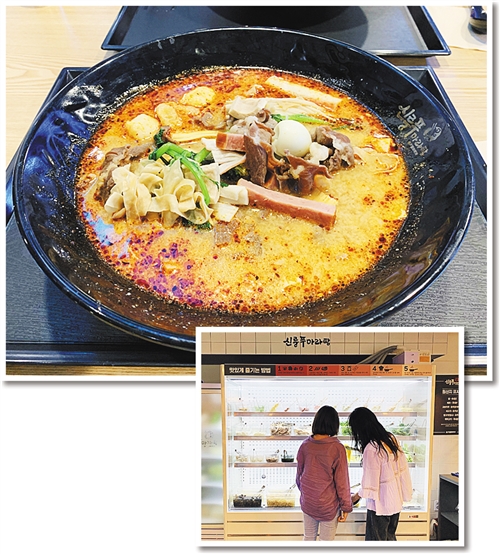After hot pot and mutton kebabs, mala Tang has also become popular in South Korea.

"This dish is spicy, okay?" When I go to a restaurant in Korea, the boss often asks such questions after discovering that the author is Chinese. At first, I was curious why I asked, but after living in Korea for a long time, I found that "Chinese doesn’t eat spicy food" seems to be the "consensus" of many restaurant owners and waiters.
Interestingly, Mala Tang, an out-and-out "Chinese food", suddenly caught fire in South Korea, and the "consensus" of Koreans on "Chinese doesn’t eat spicy food" is changing because of the popularity of Mala Tang. South Korea’s "Central Daily News" recently published a news report saying that Mala Tang has been sought after in South Korea in recent one or two years, and even promoted the sales of China beer in South Korea together with China’s mutton kebabs.
Two years ago, most Koreans didn’t know what mala Tang was. Almost all of a sudden, several mala Tang restaurants appeared in business districts such as Myeongdong and Hongda. At that time, the author was so excited to eat mala Tang in a foreign country that he shared the address of mala Tang shop with other friends in China as if it were a treasure. Later, something unexpected happened. Mala Tang restaurants have mushroomed and exploded. How much is it now? There is a short alley downstairs in the author’s house. Only in this alley, there are three mala Tang shops.
Nowadays, there are not only a large number of mala Tang shops in Seoul, but also many shops are getting bigger and bigger, and more and more branches are opened, forming a certain scale. One day, when I was watching TV, I found that the mala Tang restaurant downstairs appeared in an advertisement inserted by a famous Korean TV station. A search on the Internet revealed that this mala Tang restaurant has branches all over Korea, with more than 50 outlets in the capital circle alone, exclaiming that "the original online celebrity store is downstairs".
Korean mala Tang restaurant, the decoration style is generally very simple, and the boss and employees are mostly Chinese. Although it is called Mala Tang Store, many stores are Mala Tang and spicy incense pot. There are all kinds of meat and dishes in the store for customers to choose and weigh. When making, you can choose to make it spicy or spicy. There are also many shops that offer other China stir-fried dishes and cold salad dishes as auxiliary dishes.
In terms of taste, Mala Tang restaurants in South Korea have made some adjustments due to the limited variety of ingredients and catering to the tastes of Koreans. Although Chili or Chili powder is generally added to Korean diet, Korean food is relatively mild in spicy taste, and spicy pepper is not used in Korean traditional diet. Therefore, the spicy food, spicy incense pot and spicy pot in hot pot restaurant eaten in Korea are slightly different from those in China.
When you think about it carefully, it’s not surprising that Mala Tang has spread all over Korea, because before it, many Chinese foods have been on fire. Speaking of Chinese food which is sought after in Korea, Zhajiang Noodles is the originator. At the end of the Qing Dynasty, overseas Chinese introduced Zhajiang Noodles to South Korea, and made localization improvement and opened noodle shops. Today, more than a hundred years later, Zhajiang Noodles has become a part of Korean daily diet. Incheon also has a Zhajiang Noodles Memorial Hall dedicated to this period of history. After the establishment of diplomatic relations between China and South Korea in 1992, Chinese hot pot and mutton kebabs became popular in South Korea, and now it’s Mala Tang’s turn.
In fact, the introduction of Chinese food into South Korea is itself a product of non-governmental exchanges between the two countries and a microcosm of the history of bilateral relations. With the development of China and the deepening of foreign exchanges, there will be more and more non-governmental exchanges between China and South Korea in the future, and the people of the two countries will gain more understanding and friendship because of "eating".